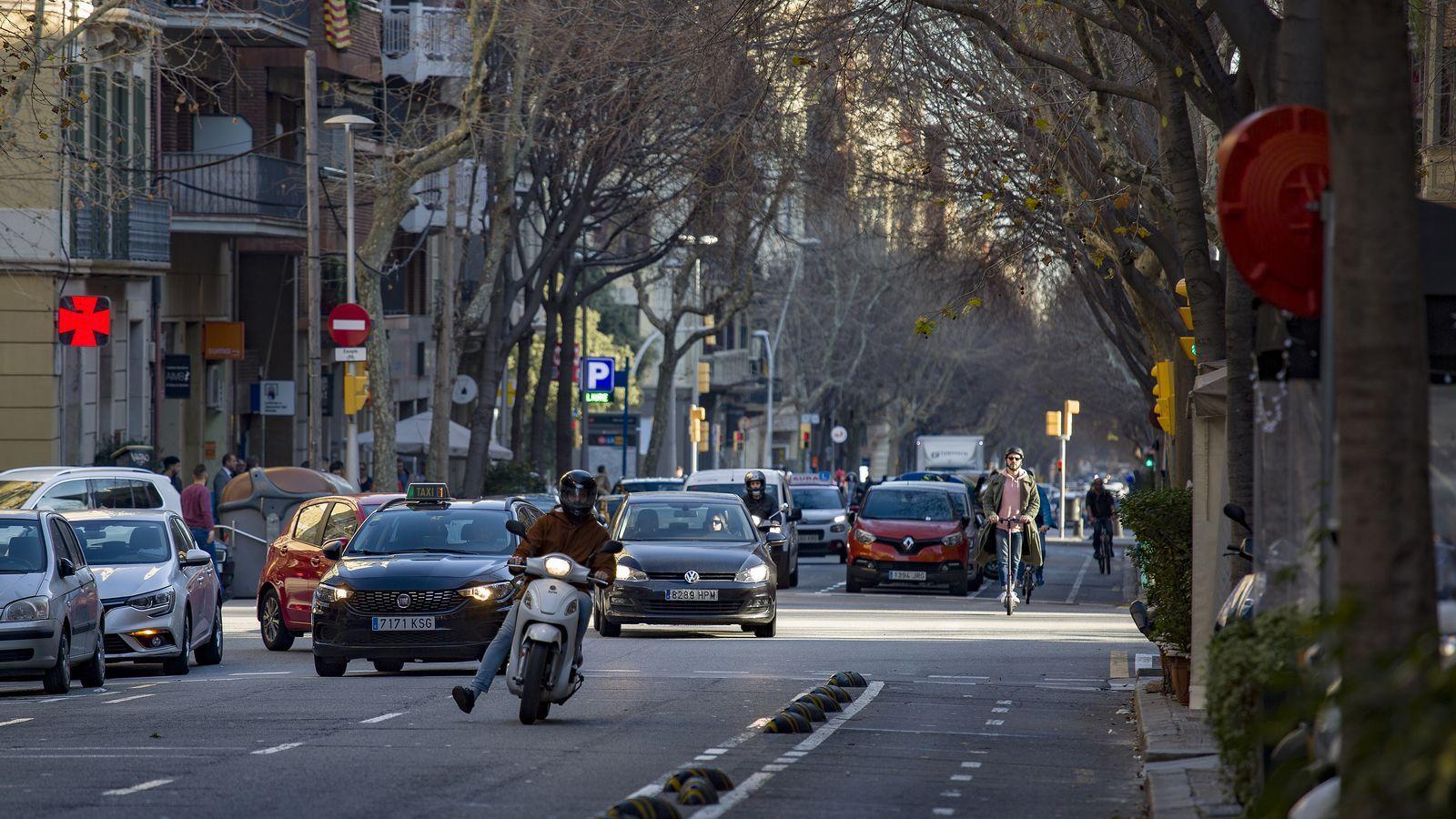

Vacations are wonderful opportunities to change activities and thoughts. I've been able to stroll through England, far from London and its metropolitan area. Although I can't help but capture impressions, some are so shocking—despite being clichéd—that I can't help but comment on them, at the risk of revealing that I'm an angry Barcelona native and that I'm getting old.
First of all, the safety of traffic on the streets. Every mode of transportation circulates where it should. In Barcelona, this has been completely lost. Walking on sidewalks is a dangerous exercise, not only when there's roadwork—then the danger increases—but always. All two-wheeled vehicles threaten pedestrians, occupy their mobility spaces, and show them no respect. Road safety in England (sidewalks included) is much higher. The danger in Barcelona is also much higher.
Secondly, the cleanliness of the streets. They're clean. Completely clean. I don't know where the birds do their business, but there's no trace left in the streets. I also don't know where the dogs do their business, but there's absolutely no trace left, anywhere, including the gardens. And it's not a question of whether it rains there or not here. It hasn't rained at all these days. Returning to Barcelona is a shock and a danger in both cases. Whose responsibility is it? There must be many, from the unsupportive or rude citizen to the negligent authorities, despite the fact that they allocate a lot of money to cleaning up the cities.
Third, good manners. The rules of good manners—letting people pass, not colliding with pedestrians looking at their phones, obeying traffic signs, not insulting inattentive tourists, being patient with drivers who don't know which way to go—are so universal and profound that we can't help but compare them with their progressive loss in our country. This good manners have the added virtue of equalizing rich and poor, young and old. That's much to be grateful for. It makes life more pleasant and increases friendliness among people. The willingness to help strangers, which we had before, remains intact, certainly because they must have fewer tourists—although domestic tourism is very important—but it's always appreciated.
Fourth, compliance with the rules of civility and behavior in public spaces is widespread. Perhaps in our country, the deterioration has been compounded by misconceptions about freedom and equality that have promoted the idea that anyone can put their feet (and shoes or boots) on the seats of the subway, trains, and buses without anyone daring to correct the offender for fear of encountering an aggressive response. Giving up seats on public transportation to the elderly or disabled is now only common practice among immigrant groups who maintain this respect, but it has disappeared among a significant portion of our youth.
All these and similar shortcomings are not due to immigration. Our immigrants seem better educated—socially speaking—than our natives. We must deduce that the failures are families—who tolerate everything when it comes to their children—the educational system—which has been completely dismantled to correct bad behavior—and the authorities—who never want to confront families or defend their teachers, who must deal with and confront the poor manners and blackmail of children and parents. Often, the ultimate disappointment begins with the authorities, who have ended up empowering the ill-mannered, who know that no one will stop them in their small or large misdeeds. Curiously—or not—the authorities behave paternally toward their public employees who deal with citizens. They have decided they can work less and belittle citizens with the bad practice of making appointments, which has not disappeared despite what is officially proclaimed. All of this generates a society in which everyone is angry and everyone else is to blame for everything. That is why it is so comforting to see that there are societies that are economically similar but much more civic and better educated. We can improve!
Perhaps the spread of the principle of complete freedom in the pursuit of one's own happiness has forgotten to protect the freedom of others. The lack of good manners—of civic courtesy or inclusive civility—makes us collectively and individually worse. Unfortunately, citizens who make an effort to correct this trend are belittled, criticized, or ridiculed. Certainly, the world of social media makes everything worse, but not in all countries and not to the same extent. There are better-educated, more civic, and—no surprise—more prosperous societies. It is possible to achieve this, and it should be our aspiration.
